Dry bulk tank trucks are a versatile and efficient way to transport granular materials. They are used in a wide range of industries, including agriculture, construction, manufacturing, and mining.
Dry bulk tank trucks are typically made of steel or aluminum. The tank is divided into two compartments: the hopper and the surge chamber. The hopper is where the granular material is loaded, and the surge chamber is where the material is stored before it is discharged.
The tank is equipped with a variety of features to ensure that the material is safely and efficiently handled. These features include:
- A loading hatch with a cover to prevent the material from spilling out
- A discharge valve with a gate to control the flow of material
- A dust suppression system to reduce dust emissions
- A level indicator to show how much material is in the tank
Dry bulk tank trucks are powered by diesel engines. The engine drives a hydraulic pump, which powers the discharge valve and the dust suppression system.
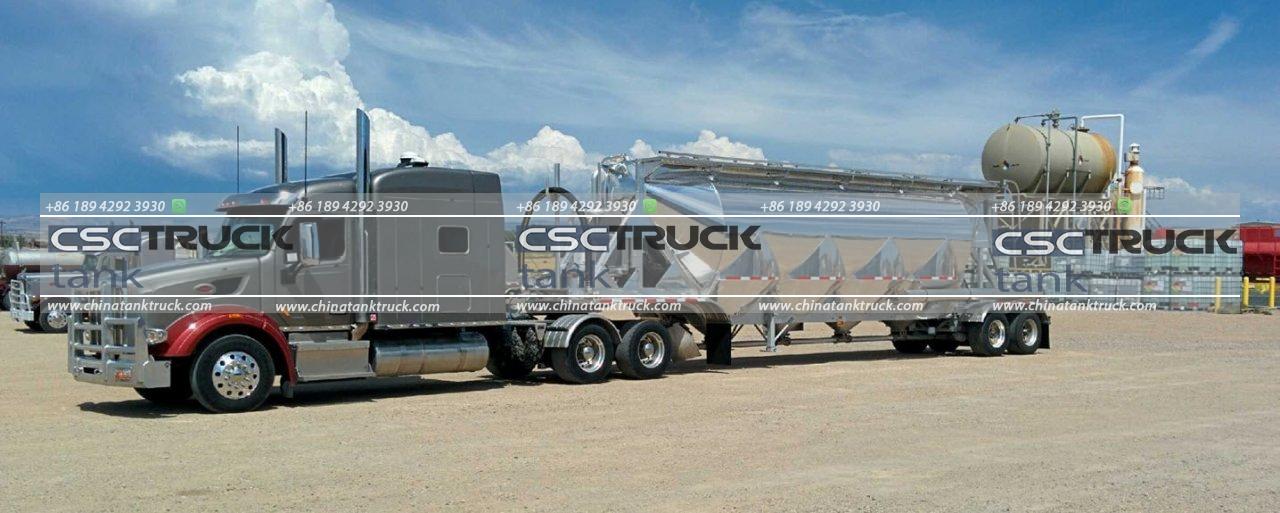
Dry bulk tank trucks are a cost-effective way to transport granular materials. They are also relatively easy to operate and maintain.
Advantages of Dry Bulk Tank Trucks
There are many advantages to using dry bulk tank trucks to transport granular materials. These advantages include:
- Efficiency: Dry bulk tank trucks are a very efficient way to transport granular materials. They can carry large loads, and they can be loaded and unloaded quickly.
- Flexibility: Dry bulk tank trucks are very flexible. They can be used to transport a wide variety of granular materials, including sand, gravel, grain, and fertilizer.
- Cost-effectiveness: Dry bulk tank trucks are a cost-effective way to transport granular materials. They are relatively inexpensive to purchase and operate.
- Safety: Dry bulk tank trucks are designed to be safe. They are equipped with features to prevent the material from spilling out, and they have a dust suppression system to reduce dust emissions.
Disadvantages of Dry Bulk Tank Trucks
There are a few disadvantages to using dry bulk tank trucks. These disadvantages include:
- Size: Dry bulk tank trucks are large vehicles. They can be difficult to maneuver in tight spaces.
- Weight: Dry bulk tank trucks are heavy vehicles. They can put a lot of stress on roads and bridges.
- Emissions: Dry bulk tank trucks can emit pollutants into the air. These pollutants can contribute to air pollution and climate change.
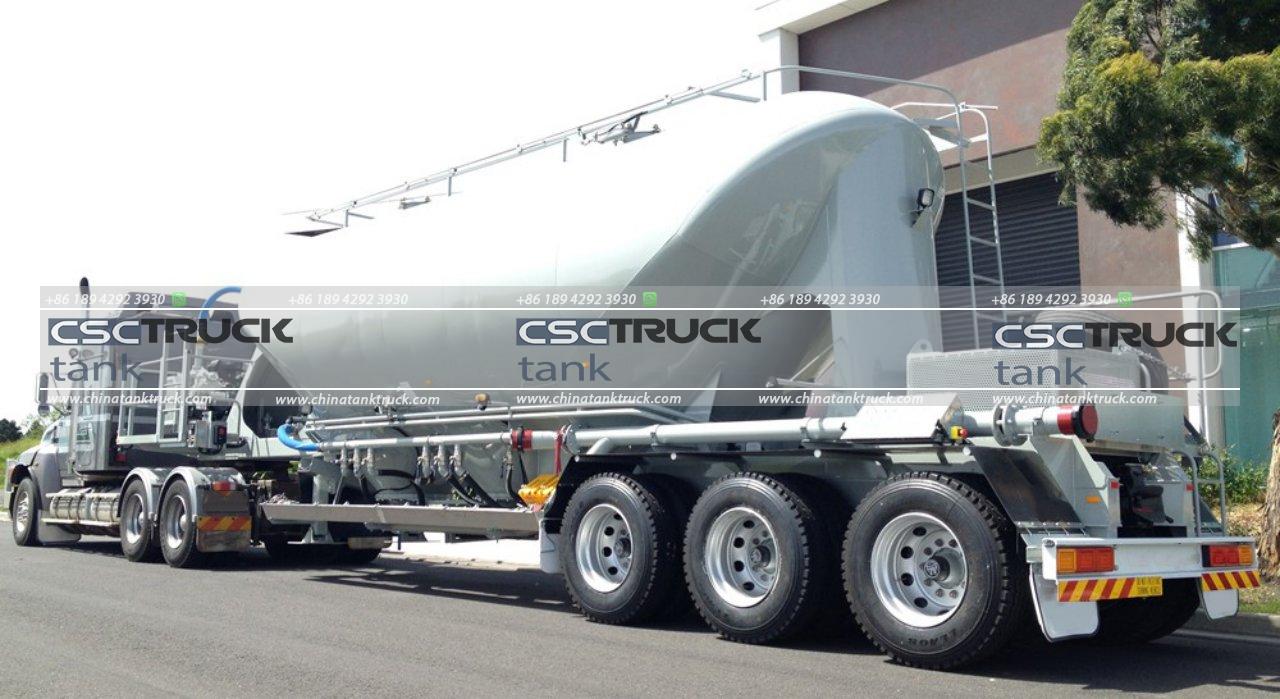
Conclusion
Dry bulk tank trucks are a versatile and efficient way to transport granular materials. They offer several advantages over other transportation methods, including efficiency, flexibility, cost-effectiveness, and safety. However, they also have some disadvantages, such as size, weight, and emissions.
Overall, dry bulk tank trucks are a good choice for transporting granular materials in a variety of industries. They are a cost-effective and efficient way to move large quantities of material, and they can be used to transport a wide variety of materials.
Additional Information
Here are some additional information about dry bulk tank trucks:
- The capacity of dry bulk tank trucks can range from a few tons to several hundred tons.
- Dry bulk tank trucks are typically used for short-haul transportation. However, they can also be used for long-haul transportation if the material is properly secured.
- Dry bulk tank trucks are subject to several regulations, including those governing emissions and safety.
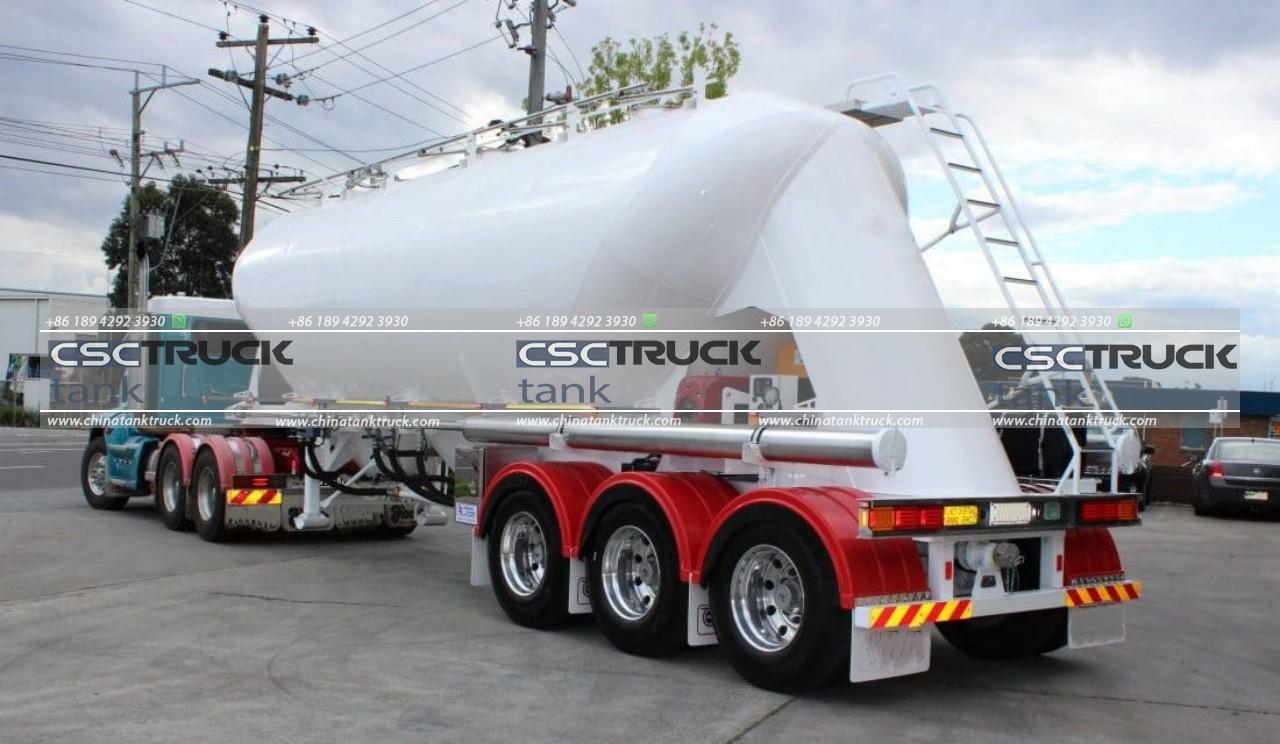
Types of Dry Bulk Tank Trucks
There are two main types of dry bulk tank trucks: pneumatic and gravity.
- Pneumatic tank trucks use compressed air to transport the material. The air is used to create a pressure differential that forces the material through a series of valves and hoppers. This type of truck is typically used for materials that are dusty or abrasive, as the compressed air helps to prevent the material from becoming airborne.
- Gravity tank trucks rely on gravity to transport the material. The material is loaded into the tank, and then it is allowed to flow out of the tank under the force of gravity. This type of truck is typically used for materials that are not dusty or abrasive.
Applications of Dry Bulk Tank Trucks
Dry bulk tank trucks are used in a wide range of industries, including:
- Agriculture: Dry bulk tank trucks are used to transport fertilizers, seeds, and other agricultural products.
- Construction: Dry bulk tank trucks are used to transport sand, gravel, and other construction materials.
- Manufacturing: Dry bulk tank trucks are used to transport raw materials, intermediate products, and finished goods.
- Mining: Dry bulk tank trucks are used to transport ore, coal, and other mining materials.
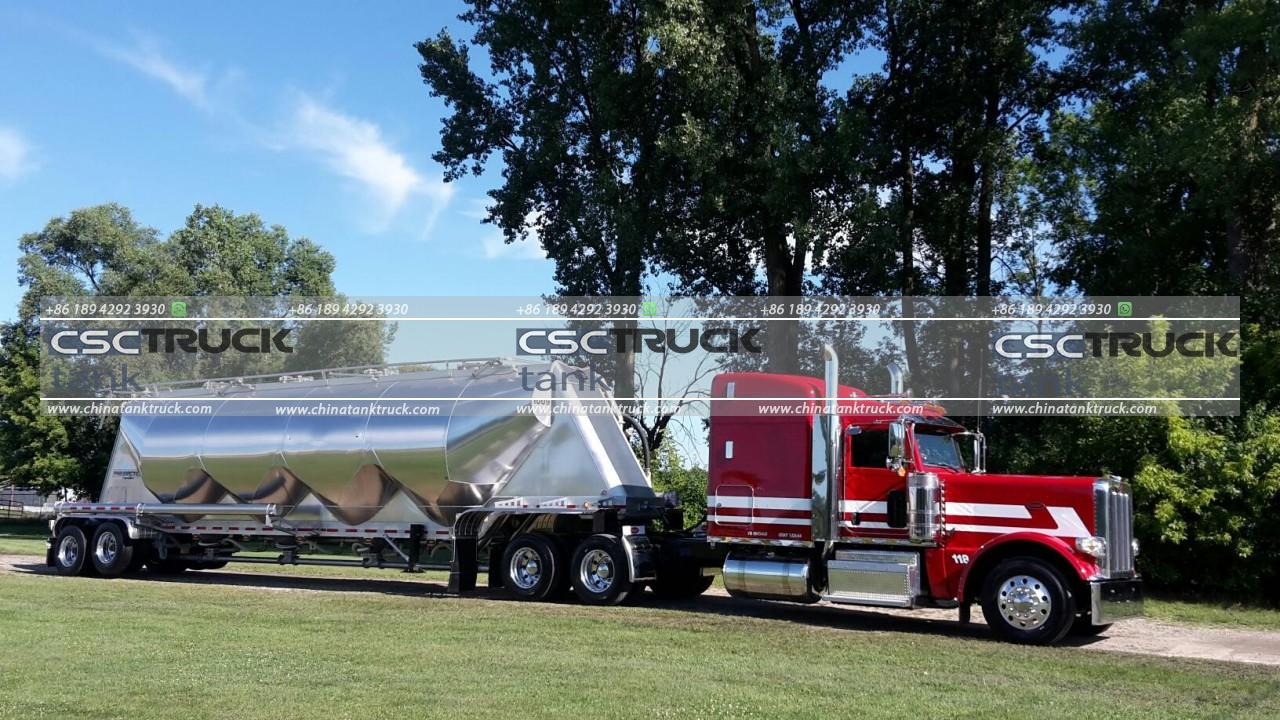
Safety Considerations
Dry bulk tank trucks can be dangerous if they are not operated properly. Some of the safety considerations for dry bulk tank trucks include:
- Loading and unloading: The material must be loaded and unloaded carefully to prevent spills.
- Transporting: The truck must be operated safely to prevent accidents.
- Storage: The truck must be stored properly to prevent fires and explosions.
Regulations
Dry bulk tank trucks are subject to several regulations, including those governing emissions and safety. Some of the regulations that apply to dry bulk tank trucks include:
- The Clean Air Act: This act regulates emissions from dry bulk tank trucks.
- The Occupational Safety and Health Act: This act sets safety standards for dry bulk tank trucks.
- The Pipeline and Hazardous Materials Safety Administration: This agency regulates the transportation of hazardous materials, including dry bulk tank trucks.
Future of Dry Bulk Tank Trucks
The future of dry bulk tank trucks is bright. As the demand for granular materials continues to grow, dry bulk tank trucks will become an increasingly important part of the transportation infrastructure.
Some of the trends that are expected to drive the growth of dry bulk tank trucks include:
- The growth of the construction industry: The construction industry is a major user of granular materials, and the growth of this industry is expected to drive the demand for dry bulk tank trucks.
- The growth of the mining industry: The mining industry is another major user of granular materials, and the growth of this industry is also expected to drive the demand for dry bulk tank trucks.
- The development of new technologies: New technologies, such as pneumatic tank trucks, are making dry bulk tank trucks more efficient and safer. These new technologies are expected to further increase the demand for dry bulk tank trucks in the future.
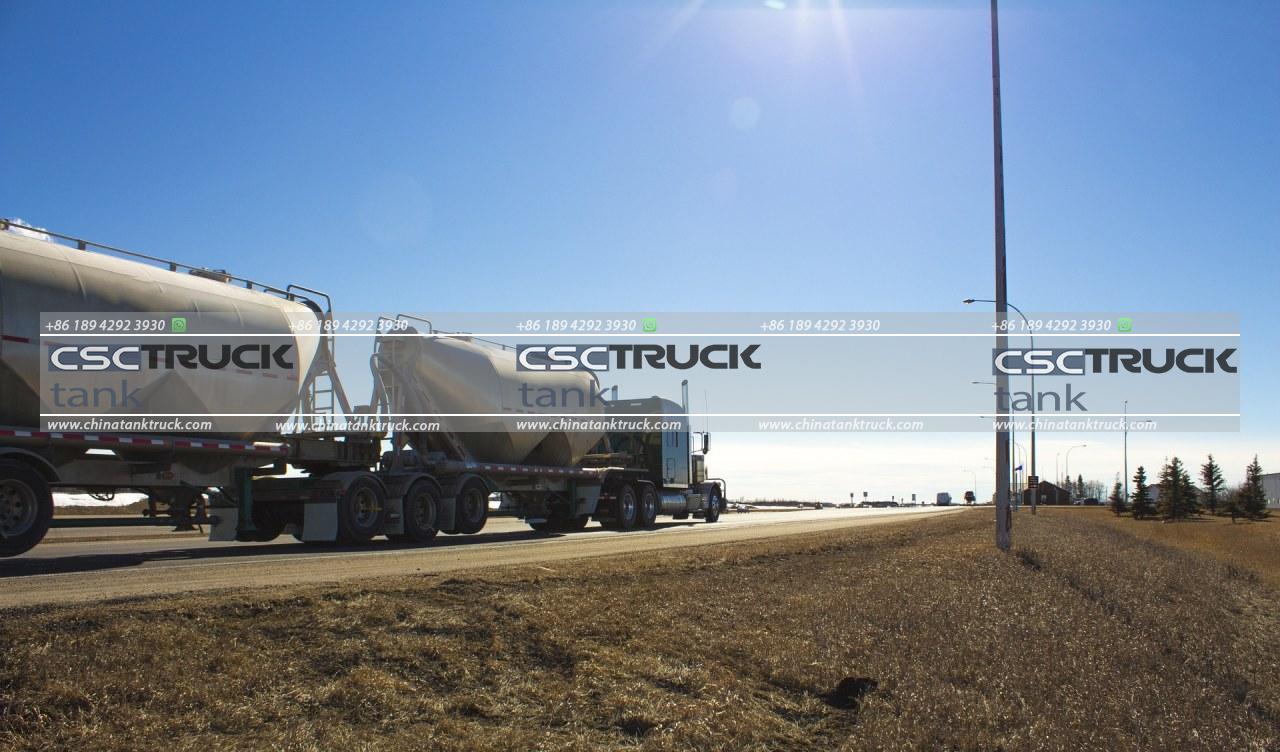
I hope this additional information has been helpful.

